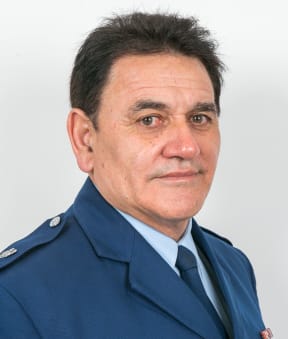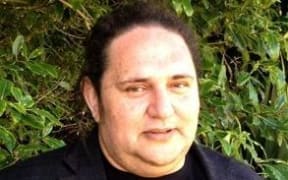The proportion of Maori in the police has risen to its highest level in eight years, with 1200 tangata whenua in the service, but still short of reflecting the national Maori population of 14.9 percent.
The proportion of Maori officers has been on the slide since 2006. Back then, 11.3 percent of Maori made up the service. Today, according to their annual report, the number is climbing again - currently sitting at 11.2 percent.
The deputy chief executive for Maori, Superintendent Wally Haumaha, is convinced that more trainees can be signed up.
"When we look at the cost of crime for Maori it takes up a significant part of the police budget. What we're trying to do is police in communities where the face of policing reflects the face of those communities.
"Whilst that might sound a cliché, I've never seen it resonate more than what's happening throughout the current structure of the organisation," he said.
Maori police - not police who are Maori
Steve Elers, of Ngati Kauwhata, writes about policing and the justice system at the Auckland University of Technology, where he is working on a PhD.
As a former policeman serving in Western Australia, he wants to see more Maori in blue who know their heritage.

Steve Elers Photo: SUPPLIED
"When I mean Maori police officers I mean 'Maori' police officers as opposed to police officers who are Maori, because they're two different things.
"One has a world view of kaupapa Maori and lives in their world being Maori. Whereas for a police officer who happens to be Maori, their first allegiance is to the occupation, to the New Zealand Police as opposed to seeing the world through a Maori lens."
The comment from Mr Elers follows the release of data collected from Maori during the Census of 2013.
It shows a total of 110,928 people of Maori descent did not know their iwi. That is an increase of 8.4 percent compared with 2006.
Signing up and serving his people
Constable Luke Ronaki from Te Puke graduated from the Police College just last week. He believes his people are over-represented in the justice system and wants to do something about it.
Mr Ronaki will be stationed in South Auckland and said back home people don't get on too well with police, and that was one of his main motives for signing up.
"People judge an organisation based on the actions of a minority. In my older years, I realised it's the wrong way to go about things. Hopefully. I can help my family and help anybody to change that perception of the police."
Mr Ronaki's career goal is to become an iwi liaison officer.
Kaupapa Maori recruitment drive a success

Superintendent Wally Haumaha Photo: SUPPLIED
Superintendent Wally Haumaha says travelling the motu (country), meeting face to face with tangata whenua has helped to increase police numbers.
The high-ranking officer says back in 2008 he and his team helped to dispel what he describes as long-held perceptions of police by leading a kapa haka roadshow. He says the haerenga - or journey - was a hit.
"Many of our people came up and said, my god if we'd known that this was the type of thing that the New Zealand Police was encouraging to join our organisation, that cares about the safety and protection of our people, and using our own language, using kapa haka as a way of reaching out, then we would have had more people attending this."
Mr Haumaha says the tour was so successful, he wants to launch another kaupapa Maori recruitment drive.
As well as boosting the number of Maori on patrol, the new ethnic picture of police shows there are now more Asian and Pacific officers.
Make-up of police
| Ethnicity | 2013 Census population base (%) | Police profile 2008/09 (%) | Police profile 2009/10 (%) | Police profile 2010/11 (%) | Police profile 2011/12 (%) | Police profile 2012/13 (%) | Police profile 2013/14 (%) |
|---|---|---|---|---|---|---|---|
| New Zealand European/Pakeha | 69.6 | 72.4 | 72.6 | 72.3 | 72.4 | 71.8 | 70.9 |
| Maori | 14.9 | 11.1 | 11.0 | 11.0 | 10.9 | 11.0 | 11.2 |
| Pacific peoples | 7.4 | 4.6 | 4.8 | 4.9 | 4.9 | 5.0 | 5.1 |
| Asian peoples | 11.8 | 2.1 | 2.1 | 2.3 | 2.3 | 2.5 | 2.7 |
| European | 6.0 | 16.8 | 16.4 | 16.2 | 15.9 | 15.6 | 17.6 |
| Other ethnic groups | 1.2 | 0.5 | 0.5 | 0.5 | 0.5 | 0.7 | 0.5 |


